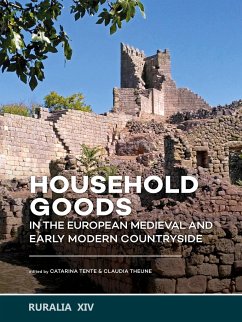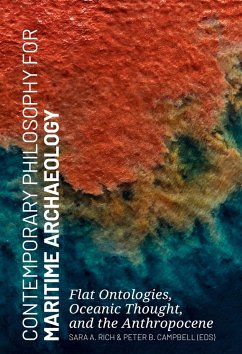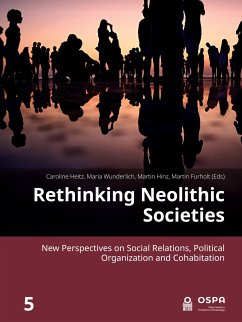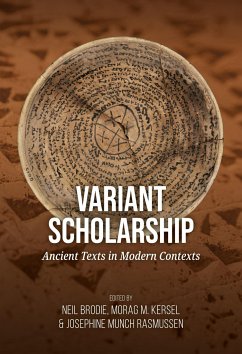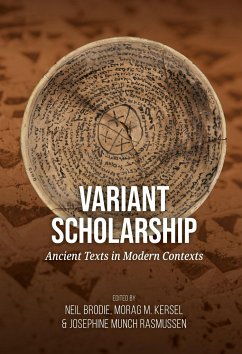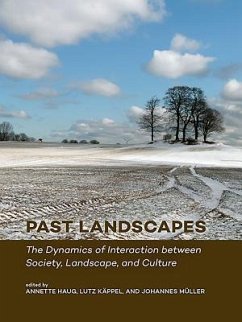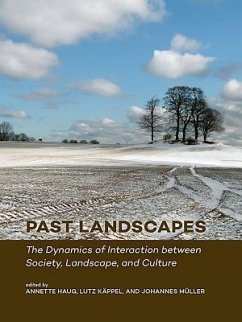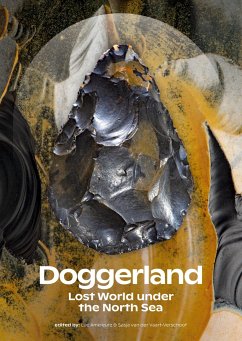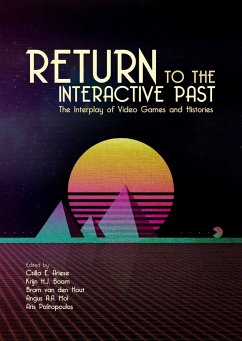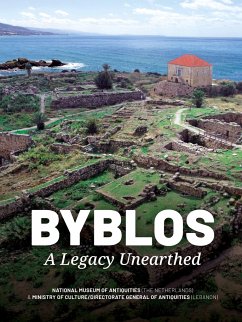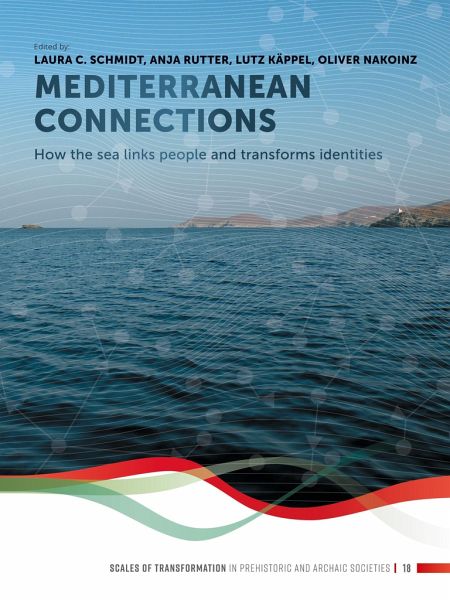
Mediterranean Connections
Versandkostenfrei!
Versandfertig in 1-2 Wochen
26,99 €
inkl. MwSt.

PAYBACK Punkte
13 °P sammeln!
The present publication constitutes the Proceedings of Session 7 of the 'Creation of landscapes VI' workshop, hosted by the CAU Kiel in 2019. The session was entitled 'Mediterranean Connections - how the sea links people and transforms identities'.With our focus on the linkage of people, this volume can be understood as a contribution to recent network research. But network research, especially when employed in the humanities, is often looked at with scepticism, not to say mistrust: Isn't this just a game with numbers? Does it really relate to the type of data we are used to in our research, t...
The present publication constitutes the Proceedings of Session 7 of the 'Creation of landscapes VI' workshop, hosted by the CAU Kiel in 2019. The session was entitled 'Mediterranean Connections - how the sea links people and transforms identities'.With our focus on the linkage of people, this volume can be understood as a contribution to recent network research. But network research, especially when employed in the humanities, is often looked at with scepticism, not to say mistrust: Isn't this just a game with numbers? Does it really relate to the type of data we are used to in our research, to poems, sherds or seal impressions? Can it say anything at all about... life?In fact, the various articles of this volume are not restricted to the strict technical approach of classical network research. Our session on Mediterranean networks started from the idea that for the inhabitants of this relatively integrated region, the sea evidently influenced their lives and their thinking in a significant way. In fact, it was the sea that provided the medium for such integration on various levels. The substantial body of data produced by long-standing research in diverse disciplines makes it possible to chart the emergence of ancient perceptions of distance and movement, connectivity and identities. This approach allows us to observe ancient awareness of the role of the sea in these processes. It also allows us to connect across academic boundaries and build a network of disciplines for a much more cohesive picture of past life.ContentsForewordIntroductionAnja Rutter, Laura C. SchmidtPart 1: Identity of Centres and PeripheriesSeafaring and the Reception of (Some) Archaic Greek Lyric PoetryMaria Noussia-FantuzziChalcidic connectivity between Sithonia and Pallene: transmutations of epichoric identity and resilience in the long 5th and 4th c. B.C.Maria G. XanthouThe importance of geography to the networked Late Bronze Age AegeanPaula Gheorghiade, Henry Price, Ray RiversTo be Greek or not to be: about the "Greekness" of Epirus and Southern Illyria. An overview through urbanism and theatrical architecture in a Mediterranean perspectiveLudovica Xavier de SilvaFrozen Wine and the frozen Black Sea. Ovid as Exiled Poet Faced with Climatic Extremes (trist. 3.10; Pont. 4.7; 4.9; 4.10)Stefan FeddernA Sea of Wine and Honey: networks of narratives as resources for the negotiation of identities, an heuristic approach in the Hellenistic Western MediterraneanRaffaella Da VelaPart 2: Connectivity by Sea and Networking of SeafarersSeafaring Songs in Pindar's Epinikia and EnkomiaThomas Kuhn-TreichelMaritime Cultural Landscapes of Fishing Communities in Roman CyprusMaria M. Michael, Carmen ObiedSea Storms and Aristocratic Identity in AlcaeusIppokratis KantziosThe Ideology of Seafaring in the Odyssey and Telemachos' Hanging of the Slave Girls (Od. 22,461-474)Hauke SchneiderMalta's connections and cultural identity: remarks on the architectural language in the westernMediterranean in the 4th and 3rd centuries BCEFrancesca BonzanoBecoming a Man Ashore - the Role of the Sea in Sappho's Brothers SongLaura C. Schmidt



